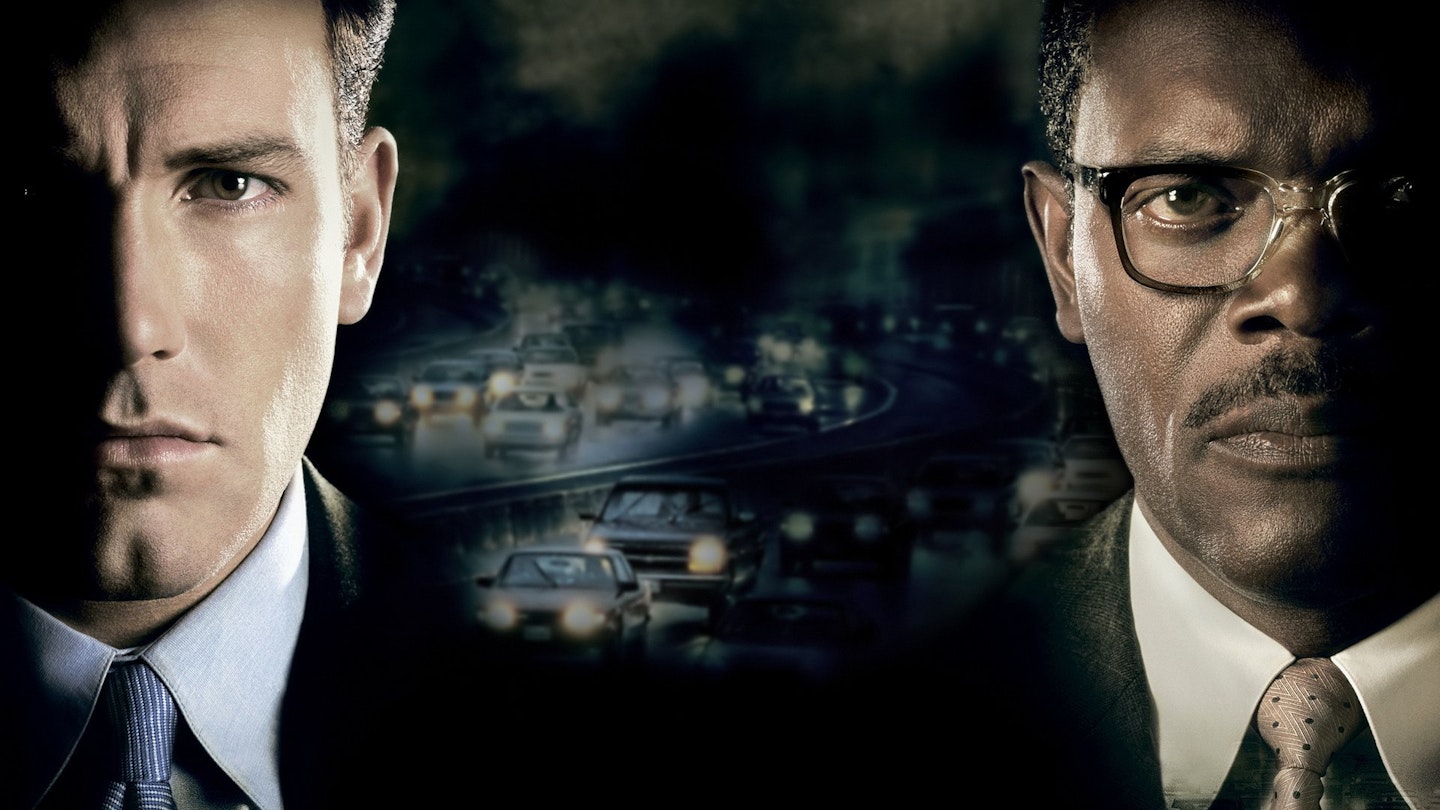Buried deep in the lower strata of Hollywood's sub-sub-genres is the 'really shitty day' movie. Previous examples include Joel Schumacher's Falling Down, Walter Hill's The Warriors and Martin Scorsese's underrated After Hours. The rules are simple: take one or more characters whose plans for the next 24 hours seem pretty simple, add one random and apparently insignificant element into the mix - a lost bank note, a traffic jam - and watch their lives unravel like so many loose-knit sweaters in a briar patch.
Changing Lanes is a superior example of the species. Here the hubristic characters are a father (Jackson) who is pursuing the last hope of his otherwise kaput marriage, and an ambitious young lawyer (Affleck), desperate to impress his intimidating boss (Sydney Pollack). The catalyst for their downfall is a minor fender-bender on a rainy New York morning.
Screenwriters Taylor and Tolkin (respectively, Woody Allen's production assistant and screenwriter of The Player) have wrought an intricate screenplay full of misdirection and surprising hairpin twists. Michell's direction is precise and understated, a world away from the cloying sentiment he drizzled over Notting Hill. But what's really impressive about the film is that the two central characters being put through the emotional wringer are neither all-hero nor all-villain, as might be expected from a studio movie with two big-name stars. Instead, Banek and Gipson are stressed, flawed human beings trying to survive the urban pressures of New York at different ends of the social spectrum.
Jackson gives an intense, discomforting edge to a character which otherwise could easily have been a cardboard cut-out 'recovering alcoholic with issues'. At one point he brutally beats a couple of two-bit racists, seeming not to know or care when to stop, and giving the audience cause to wonder whether his wife's decision to abandon him might have been the right one: he's a cloud of nebulous rage.
Equally, Affleck's character is not a stereotyped grasping yuppie. His depiction of a youthful WASP-ish attorney draws on the slight sleaziness he showed in Boiler Room and Mall Rats, but it's tempered by an increasingly horrified awareness of his dizzying spiral into corruption and vengeance. It may be the best performance of his career so far and he, together with Amanda Peet as his wife, deliver one of the movie's high-points - a restaurant scene in which he discovers his marriage is not built on the foundations he thought. It's as icy a representation of cynical corruption as anything by Neil LaBute, and one of the best scenes in any movie this year.
But, like its protagonists, Changing Lanes has a flaw - a precision-tooled Hollywood ending which has all the sophistication of a Sesame Street homily. Look, it says, if we could only just all sit down and talk, maybe we could learn to co-operate... It's a pity, since the film has otherwise watched - with an ironic, appalled fascination - what otherwise sane individuals are capable of doing to each other in extremis, and this too-neat ending has the necrotic whiff of focus group response cards and studio cowardice. Apart from that probably inevitable disappointment, this is a gripping, intelligent film.

